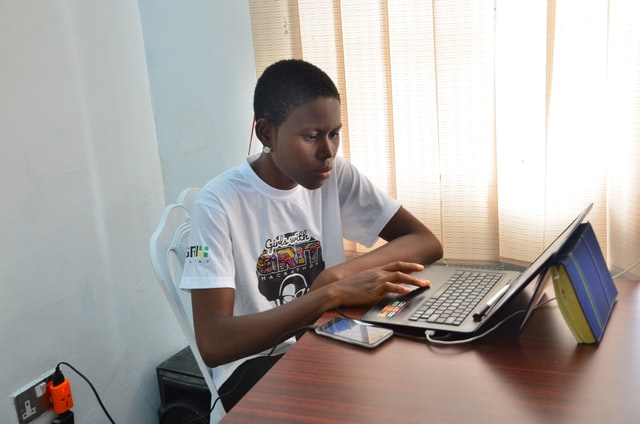A final-year project is a major academic assignment that requires students to conduct independent research on a topic of their choice.
It is an opportunity for students to demonstrate their skills, knowledge, and passion in their field of study.
It is also a requirement for the completion of their degree program. However, choosing a final-year project topic can be a daunting and stressful task for many students.
There are many factors to consider, such as the availability of resources, the relevance of the topic, the originality of the idea, the feasibility of the research, etc.
How can students find a good topic that meets these criteria and also interests them?
In this article, I will provide some steps and tips on choosing a final-year project topic at Nigerian University, ensuring that you make a well-informed decision you’re passionate about.
Let’s dive in and find the perfect project topic to inspire and propel you toward success in your final year at the university!
Table of contents
How to Choose a Final Year Project Topic
The following are tips on how to choose a final year project topic at a university in Nigeria;
- Understanding the Requirements
- Identifying Your Interests and Strengths
- Researching Potential Topics
- Brainstorming and Narrowing Down
- Discussing with Faculty and Peers
Understanding the Requirements

Before choosing a final-year project topic, you need to understand the requirements and expectations of your university, department, and supervisor.
This will help you avoid confusion, disappointment, or rejection later on.
Here are some steps to follow:
- Familiarize yourself with the university’s guidelines and requirements: Read the official documents and policies that outline the aims, objectives, outcomes, and standards of the final year project. Pay attention to the deadlines, formats, word limits, assessment criteria, and plagiarism rules. These documents are found on the university’s website or the student handbook.
- Consider the expectations of your department or faculty: Each department or faculty may have its preferences and priorities for the final year project. For example, some may emphasize theoretical or empirical research, while others may value practical or creative work. You can consult your course coordinator, lecturer, or tutor to understand what they are looking for in a good project topic.
- Review any specific criteria or constraints for the final year project: Depending on your field of study, you may have to meet specific requirements or limitations for your project. For instance, you may need ethical approval, secure funding, access equipment or data, conduct experiments or surveys, etc. You can check with your supervisor or mentor to determine what these are and how they affect your topic choice.
Identifying Your Interests and Strengths

Your interest and passion are among the most critical factors in choosing a final-year project topic.
You will be spending a lot of time and effort on your project, so you want to ensure that you enjoy and care about it.
Moreover, your interest and enthusiasm will show in your work and impress your supervisor and examiners.
Here are some steps to identify your interests and strengths:
- Reflect on your previous courses and assignments: Consider the topics, themes, issues and questions you found most exciting and engaging in your earlier studies. What did you enjoy learning and researching? What sparked your curiosity and motivation? You can also review your previous assignments and feedback to see what you did well and what you can improve on.
- Explore your hobbies and passions: Besides your academic interests, you may also have some personal hobbies and passions related to your field of study. For example, if you are studying computer science, you may enjoy coding, gaming, hacking, etc. If you are studying sociology, you may be interested in social movements, culture, diversity, etc. You can use these hobbies and passions as sources of inspiration for your project topic.
- Assess your skills and abilities: Another factor to consider is your skills and abilities about your project topic. You want to choose a topic that matches your strengths and challenges you to grow. For example, if you are good at writing, you may want to select a topic that requires a lot of literature review and analysis. If you are good at math, you may want to select a topic that involves a lot of data collection and statistics. You can also identify the areas you need to improve on and seek help or guidance from your supervisor or peers.
Researching Potential Topics

Researching potential topics for your final year project is essential in choosing the right issue.
Here are some steps to help you in your research:
- Read scholarly articles and research papers: Explore academic journals, databases, and online resources related to your field. This will help you better understand current research trends, knowledge gaps, and potential exploration areas.
- Consult with professors, advisors, and industry professionals: Contact your faculty members, mentors, or professionals in your field for guidance. They can provide valuable insights, suggest relevant research areas, and share their expertise to help you narrow down your options.
- Attend seminars, conferences, and workshops: Participating in academic events lets you stay updated on your field’s latest advancements and emerging topics. Engage in discussions, listen to presentations, and network with experts to gain inspiration and identify potential project ideas.
- Explore online resources: Utilize online platforms, such as academic databases, research portals, and open-access repositories, to access a wide range of scholarly content. These resources can provide a wealth of information and expose you to various research areas.
- Consider interdisciplinary approaches: Think about how your field intersects with other disciplines. Explore multidisciplinary research areas that may offer unique perspectives and opportunities for innovation. This can broaden your options and lead to more creative and impactful project ideas.
- Analyze previous projects and dissertations: Review final year projects or dissertations from earlier years within your department or university. This can give you an idea of the scope, methodology, and potential areas for improvement. Identify any gaps or novel directions that you can explore further.
- Evaluate and organize your sources: As you find sources for your topic, you should evaluate them for their quality, credibility and relevance. You can use authority, accuracy, currency, coverage and objectivity criteria to assess your sources. You should also organize your seeds by creating a bibliography or reference list that follows the citation style required by your university or department.
Remember to document your findings, take notes, and organize your research materials effectively.
This will help you keep track of the information you gather and make evaluating and comparing potential topics easier.
Brainstorming and Narrowing Down

After researching potential topics, you must brainstorm and narrow down your options to select the best one for your final-year project.
Brainstorming and narrowing down can help you generate creative and original ideas, avoid duplication or overlap with existing research, and focus on a specific and manageable research problem.
Here are some steps to brainstorm and narrow down your topics:
- Generate a list of potential ideas: Start by brainstorming and writing down all the project ideas that come to mind, regardless of their feasibility or relevance. Allow yourself to explore different areas and think creatively without judgment.
- Evaluate feasibility and relevance: Once you have a list of ideas, evaluate each based on feasibility and relevance to your field of study. Consider factors such as available resources, equipment, data, and expertise to execute the project successfully.
- Consider your interests and strengths: Reflect on your interests, passions, and academic strengths. Choose topics that align with your expertise and that you genuinely find intriguing. Projects you are passionate about will more likely keep you motivated and engaged throughout the process.
- Assess the potential impact: Consider each project idea’s potential impact and significance. Ask yourself questions such as: Will it contribute to existing knowledge? Can it address a real-world problem? Does it have the potential to make a difference in your field? Choose a topic that has the potential to create meaningful outcomes.
- Eliminate ideas that are too broad or narrow: Ensure that your project topic is neither too wide nor too little. A general topic may be challenging to cover within the time frame and resources available, while a narrow topic may limit the depth and scope of your research. Aim for an issue that strikes the right balance and allows for a comprehensive investigation.
- Seek feedback and advice: Share your potential topics with your professors, advisors, or peers. Seek their input and advice on the viability and suitability of each idea. They can provide valuable insights and suggestions and help narrow your options based on their expertise and experience.
- Finalize your topic: Based on the rankings and evaluations, select the most promising project topic that meets your criteria. Ensure that it aligns with the guidelines and requirements of your university and department. If necessary, consult your advisor to get final approval and refine the topic further.
Discussing with Faculty and Peers

Another good step in choosing a final-year project topic is to discuss your ideas with your faculty and peers.
Discussing with faculty and peers can help you get valuable feedback, advice, and support for your project.
It can also help you avoid potential pitfalls, conflicts or ethical issues during your research.
To do this, you should first identify a potential supervisor with expertise and interest in your topic.
You can check the faculty profiles on the university website or ask your course coordinator for recommendations.
You should also contact your potential supervisor early and request a meeting to discuss your topic.
Before you meet with your potential supervisor, you should prepare a brief proposal or outline of your topic.
- Your proposal should include your project’s main aim, objectives, research questions, hypotheses, methodology and expected outcomes.
- It would be best if you also prepared some questions or concerns about your topic or project.
- You should listen carefully and respectfully to your potential supervisor’s feedback and suggestions during the meeting.
- You should also ask questions and clarify any doubts or issues. You should be open to feedback and willing to modify or improve your topic based on your potential supervisor’s input.
Besides your potential supervisor, you can consult with your peers working on similar or related topics.
You can form a study group or join an online community where you can share ideas, resources, and experiences.
You can also ask for peer feedback and offer constructive criticism to each other. Consulting with peers can help you learn from each other and enhance your research skills.
Conclusion
Choosing a final-year project topic is crucial and challenging for any student. It requires a lot of research, creativity, reflection and feedback.
However, following the steps and tips discussed in this article can make the process easier and more enjoyable.
You can also improve your chances of selecting a relevant, feasible, original and exciting topic.
A good case can help you showcase your skills, knowledge and passion in your field. It can also help you contribute to advancing knowledge and practice in your discipline.
Therefore, we encourage you to take this task seriously and choose a topic you are proud of and excited about.
I wish you all the best in your final year project.
Let me know if you have any questions or need further clarification. I would love to assist you.
You can watch my videos on the Studentship YouTube Channel by clicking here.
Join my Facebook Group, Like my Facebook Page or Follow Me on WhatsApp for more interactive discussions.
